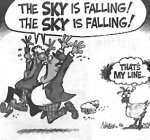- Joined
- Dec 3, 2017
- Messages
- 26,290
- Reaction score
- 16,771
- Gender
- Male
- Political Leaning
- Progressive
Here’s how the U.S. could release a COVID-19 vaccine before the election—and why that scares some | Science | AAAS
When President Donald Trump accepted his party’s nomination for another term last night at the Republican National Convention, he pledged that the push by his administration’s Operation Warp Speed to deliver a COVID-19 vaccine would succeed “before the end of the year, or maybe even sooner.”
That promise concerns many vaccine veterans. They worry that political forces—the U.S. presidential election on 3 November, nationalistic pride to “win” a race, the need to resuscitate economies—could lead to premature and dangerous approvals under mechanisms such as the emergency use authorization (EUA), a pathway used by the U.S. Food and Drug Administration (FDA) to allow rapid access to diagnostics, treatments, and vaccines. Long a bastion of regulatory rigor that many other countries look to for guidance, FDA has been criticized for issuing EUAs for two COVID-19 treatments, convalescent plasma and hydroxychloroquine, based on scant data and apparent political pressure. (The hydroxychloroquine EUA has since been revoked.) Paul Offit, a pediatrician at the Children’s Hospital of Philadelphia who is a member of a group that advises FDA about its vaccine decisions, suspects the Trump administration might seek a COVID-19 vaccine EUA before the elections and say: “We Warp Speeded our way to a vaccine.”
China and Russia already have approved limited use of COVID-19 vaccines outside of clinical trials, offering baffling—and sharply criticized—rationales. In the United States, Operation Warp Speed, as its name implies, hopes to move vaccine candidates forward more quickly than ever before. It has invested more than $10 billion in developing eight different COVID-19 vaccines, with much of that money pre-purchasing hundreds of millions of doses so they will be at the ready if an FDA approval comes through. Three of the Warp Speed-backed vaccines have entered efficacy trials, and one manufacturer has pledged to start delivering the first of 300 million doses as early as October—though one person close to Operation Warp Speed says, “There won’t be enough vaccine in October to create anything other than a news story.” (more)
========================================================================================
The coming election will be the perfect opportunity to launch perhaps multiple vaccines with little control or oversight.
When President Donald Trump accepted his party’s nomination for another term last night at the Republican National Convention, he pledged that the push by his administration’s Operation Warp Speed to deliver a COVID-19 vaccine would succeed “before the end of the year, or maybe even sooner.”
That promise concerns many vaccine veterans. They worry that political forces—the U.S. presidential election on 3 November, nationalistic pride to “win” a race, the need to resuscitate economies—could lead to premature and dangerous approvals under mechanisms such as the emergency use authorization (EUA), a pathway used by the U.S. Food and Drug Administration (FDA) to allow rapid access to diagnostics, treatments, and vaccines. Long a bastion of regulatory rigor that many other countries look to for guidance, FDA has been criticized for issuing EUAs for two COVID-19 treatments, convalescent plasma and hydroxychloroquine, based on scant data and apparent political pressure. (The hydroxychloroquine EUA has since been revoked.) Paul Offit, a pediatrician at the Children’s Hospital of Philadelphia who is a member of a group that advises FDA about its vaccine decisions, suspects the Trump administration might seek a COVID-19 vaccine EUA before the elections and say: “We Warp Speeded our way to a vaccine.”
China and Russia already have approved limited use of COVID-19 vaccines outside of clinical trials, offering baffling—and sharply criticized—rationales. In the United States, Operation Warp Speed, as its name implies, hopes to move vaccine candidates forward more quickly than ever before. It has invested more than $10 billion in developing eight different COVID-19 vaccines, with much of that money pre-purchasing hundreds of millions of doses so they will be at the ready if an FDA approval comes through. Three of the Warp Speed-backed vaccines have entered efficacy trials, and one manufacturer has pledged to start delivering the first of 300 million doses as early as October—though one person close to Operation Warp Speed says, “There won’t be enough vaccine in October to create anything other than a news story.” (more)
========================================================================================
The coming election will be the perfect opportunity to launch perhaps multiple vaccines with little control or oversight.

